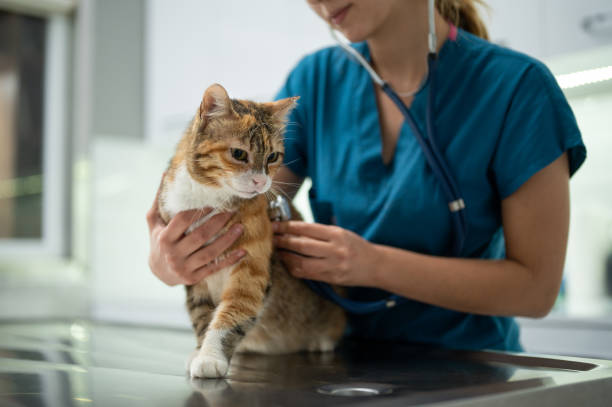Selecting the right veterinarian for your pet is one of the most important decisions you’ll make as a pet owner. Your vet will play a crucial role in maintaining your pet’s health and well-being, so it’s essential to choose someone who is not only skilled and experienced but also someone you feel comfortable with. Here’s a comprehensive guide to help you choose the best veterinarian for your beloved pet.
1. Why Choosing the Right Veterinarian Matters
Quality of Care
A knowledgeable and compassionate vet will provide high-quality care tailored to your pet’s specific needs. They can help prevent diseases, manage health conditions, and ensure your pet lives a long and healthy life.
Trust and Comfort
You need to trust your veterinarian’s expertise and feel comfortable discussing your pet’s health. A good relationship with your vet will make visits more pleasant and effective.
Emergency Care
In case of emergencies, having a vet who knows your pet’s medical history and whom you trust can make a significant difference in your pet’s outcome.
2. Key Considerations When Choosing a Veterinarian
2.1. Qualifications and Experience
Questions to Ask:
- What are your qualifications and areas of expertise? Ensure the vet is licensed and has relevant experience, especially if your pet has specific health needs.
- How long have you been practicing? Experience can be crucial, especially for handling complex cases.
Considerations:
- Look for a vet who has experience with your pet’s species and breed. For instance, a vet specializing in cats might not be the best choice if you have a dog with unique health concerns.
2.2. Services Offered
Questions to Ask:
- What services do you offer? Ensure the clinic provides a comprehensive range of services, including preventive care, diagnostic services, surgery, and emergency care.
- Do you offer specialized services? If your pet has specific needs, such as dental care or dermatology, confirm that the vet can handle these or refer you to a specialist.
Considerations:
- Some clinics have advanced equipment and offer specialized treatments. Assess if these align with your pet’s needs.
2.3. Clinic Location and Hours
Questions to Ask:
- What are your office hours? Ensure the clinic’s hours are convenient for you and check if they offer emergency services outside regular hours.
- Where is your clinic located? Proximity to your home can be important, especially in emergencies.
Considerations:
- Consider the clinic’s location and hours relative to your schedule and whether they provide emergency or on-call services.
2.4. Communication and Comfort
Questions to Ask:
- How do you communicate with pet owners? Ask how the vet and staff communicate important information, such as test results and treatment plans.
- How do you handle questions and concerns? Ensure the vet is open to answering questions and discussing your pet’s care in detail.
Considerations:
- Choose a vet who communicates clearly and listens to your concerns. You should feel comfortable asking questions and discussing treatment options.
2.5. Clinic Environment
Questions to Ask:
- Can I tour the facility? A tour can help you assess the cleanliness and organization of the clinic.
- What are your protocols for hygiene and sanitation? Ensure the clinic follows strict hygiene practices.
Considerations:
- A well-maintained, clean, and organized facility reflects the quality of care your pet will receive.
2.6. Staff and Team Dynamics
Questions to Ask:
- How long have your staff members been with you? Stability in the staff can indicate a positive work environment and consistent care.
- What is the staff-to-pet ratio? Ensure there are enough staff members to provide adequate care.
Considerations:
- Friendly and knowledgeable staff can enhance your experience. Observe how staff interact with pets and owners.
2.7. Cost and Payment Options
Questions to Ask:
- What are your payment policies? Inquire about payment methods, insurance acceptance, and financing options.
- How do you handle unexpected costs? Understand how the clinic manages unforeseen expenses and whether they provide cost estimates for procedures.
Considerations:
- Ensure you can afford the services provided and that the clinic is transparent about costs.
3. Steps to Find the Right Veterinarian
3.1. Research and Recommendations
Start by researching local veterinarians online and seeking recommendations from friends, family, or local pet groups. Read reviews and check ratings to get a sense of the clinic’s reputation.
3.2. Visit Multiple Clinics
Visit a few different clinics to compare them. Observe the environment, meet the staff, and get a feel for the clinic’s atmosphere and approach to care.
3.3. Schedule a Consultation
Schedule a consultation or initial visit to discuss your pet’s needs and see how the vet interacts with your pet. This visit will help you assess their approach and determine if it aligns with your expectations.
3.4. Evaluate and Decide
After visiting several clinics, evaluate your options based on your observations and the answers to your questions. Choose a vet who meets your criteria for quality care, communication, and comfort.
4. Conclusion
Choosing the best veterinarian for your pet is a crucial decision that can impact their health and well-being. By considering qualifications, services, communication, and other factors, you can find a vet who will provide the best care for your furry friend. Take your time to research, visit clinics, and ask questions to ensure you make an informed choice. Your pet’s health and happiness depend on it.
Happy pet parenting!











Leave a Reply